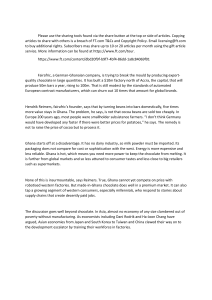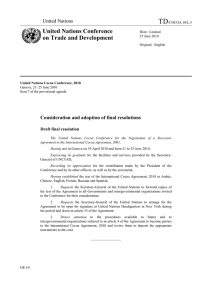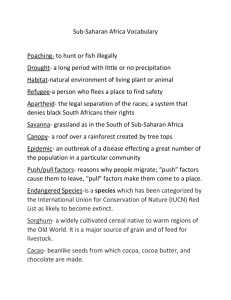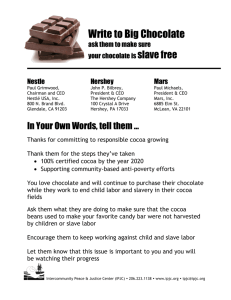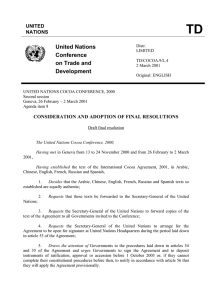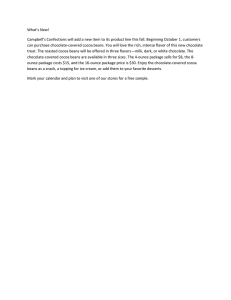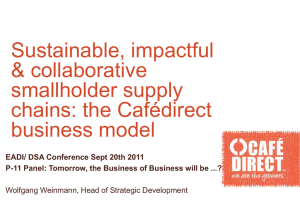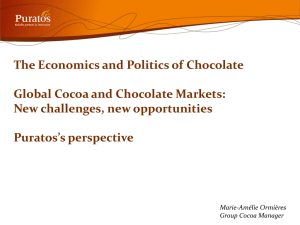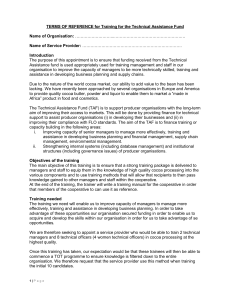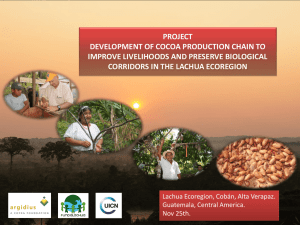What*s the fuss about chocolate?
advertisement
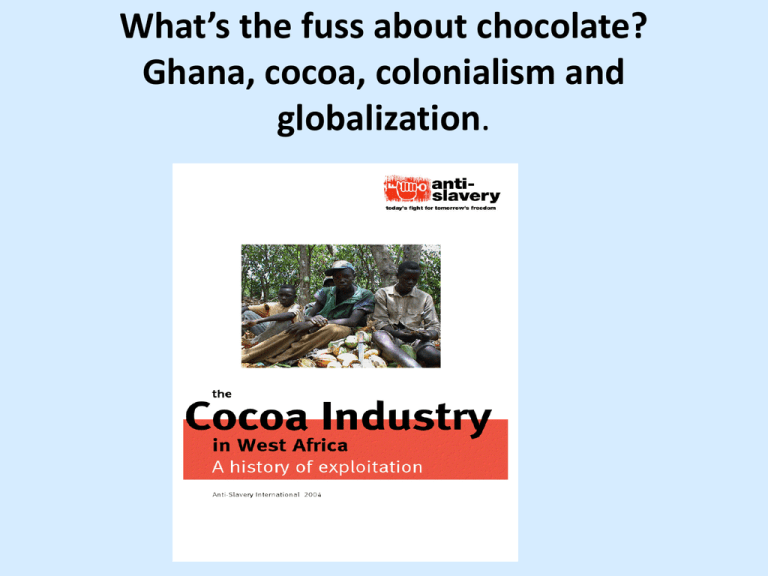
What’s the fuss about chocolate? Ghana, cocoa, colonialism and globalization. The practice of history and secondary teaching • Deep subject knowledge is necessary but what about ‘PCK’? • There is an ‘epistemic tradition’ (C.Counsel) • This provides guidance as to the forms, processes and structures of history. • The practice is transformed in pedagogy and interpreted in the curriculum. Historical thinking: • • • • This is promoted in the foreword of CAPS Perspective, interpretation, debate Context What about historiographical understanding: national history, Africanist history, social history, new cultural history, gender history, post-colonial history? The story of cocoa and CAPS Gr 8: Scramble for Africa – case study of Ashanti. Cocoa introduced to Africa as an example of early globalization and of colonial influence Gr 11: From Gold Coast to Ghana. Colonial policy evident in approach to cocoa industry: from umpire to the developmental state; Nkrumah ‘s approach Globalization Gr 12: A new World Order Ghana’s place in a globalized world – parallels with Ivory Coast; Cocoa in the world market; Issues of child labour become human rights issues. What questions would different historians ask? • What is the meaning of chocolate ? • How can we overcome the silences about women in this very male story? • What about the everyday lives of cocoa producers? • What was the mental world of colonial subjects? • Should we celebrate the agency of peasant farmers or decry their exploitation? • Isn’t this all fiction anyway?
